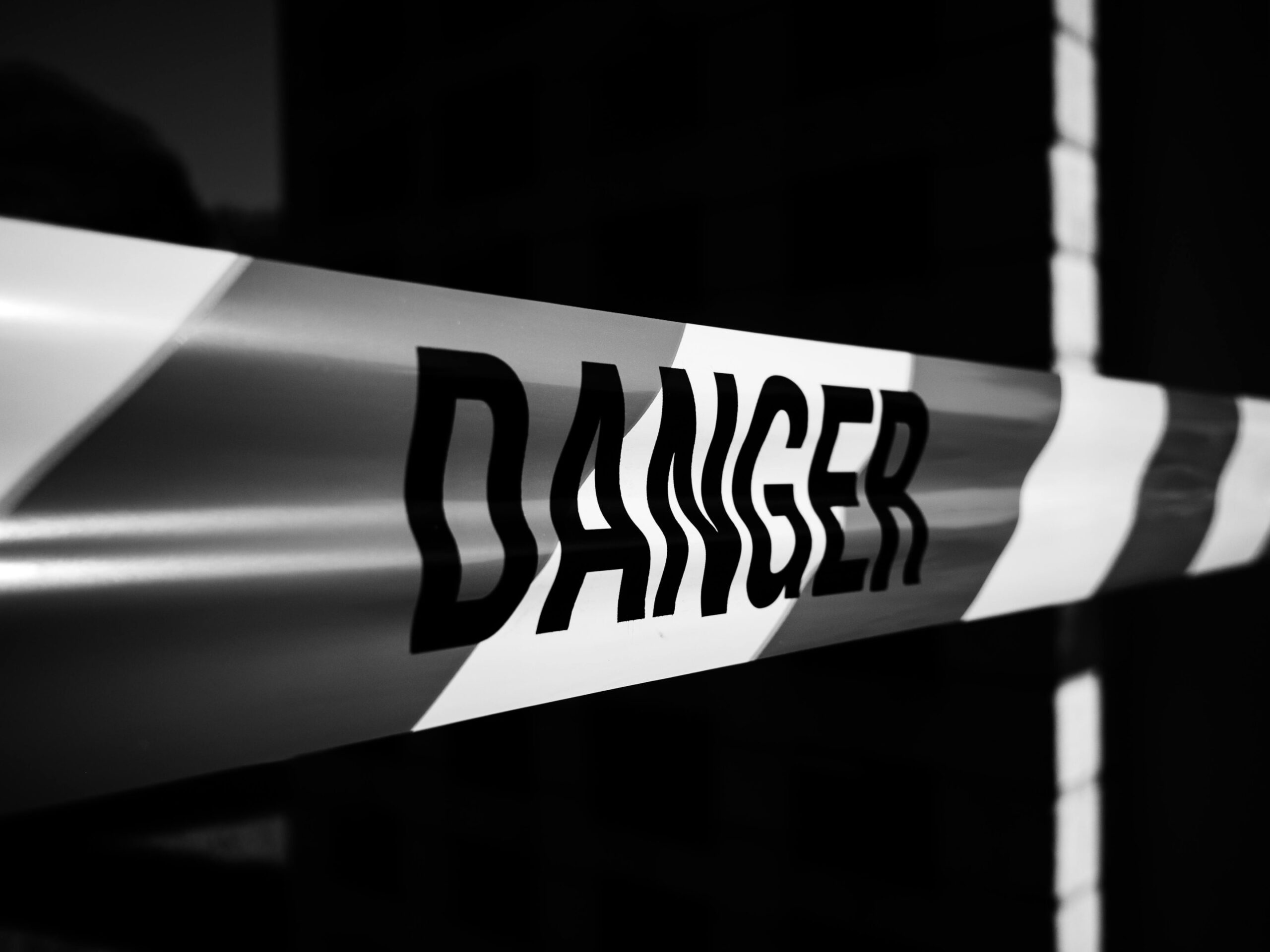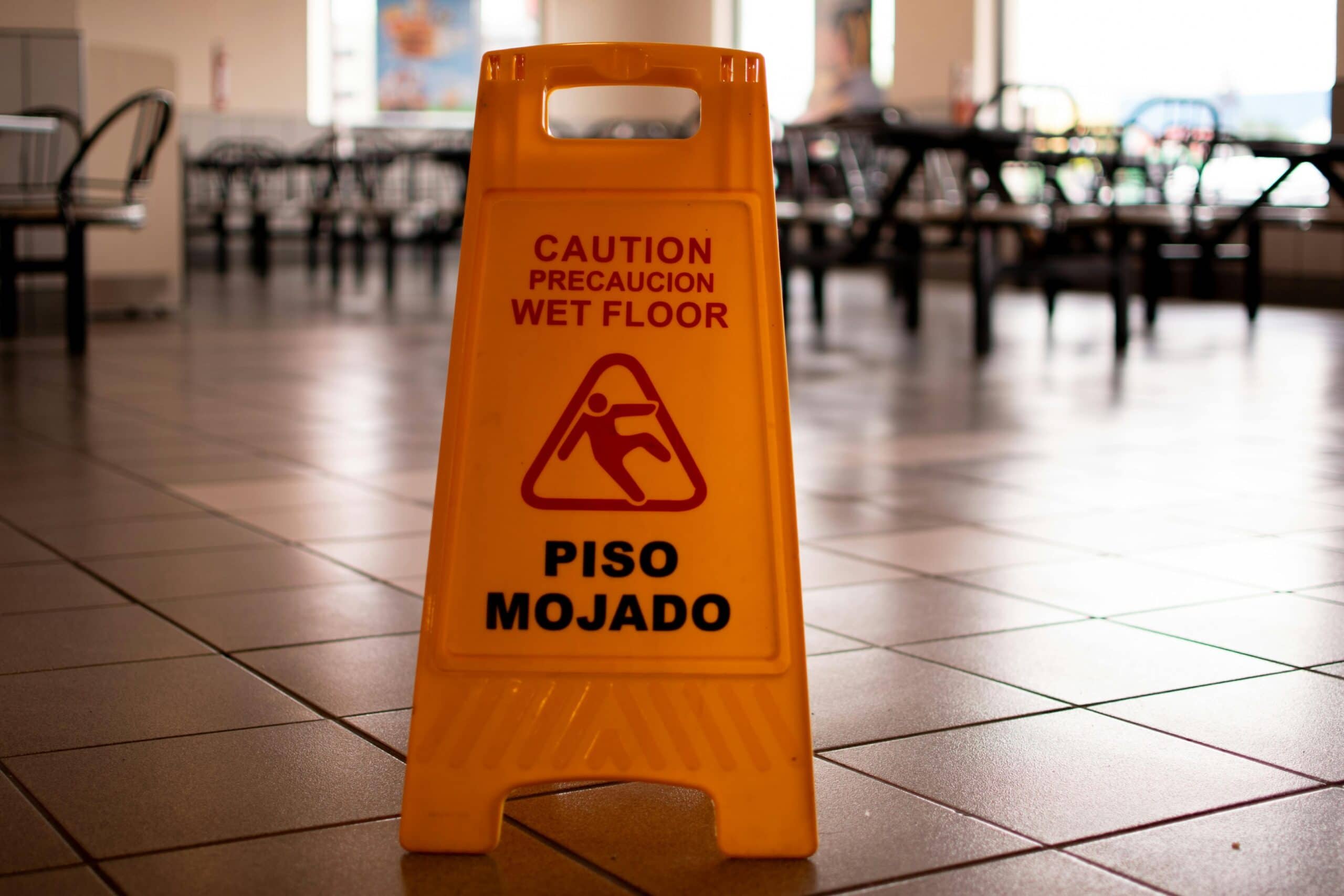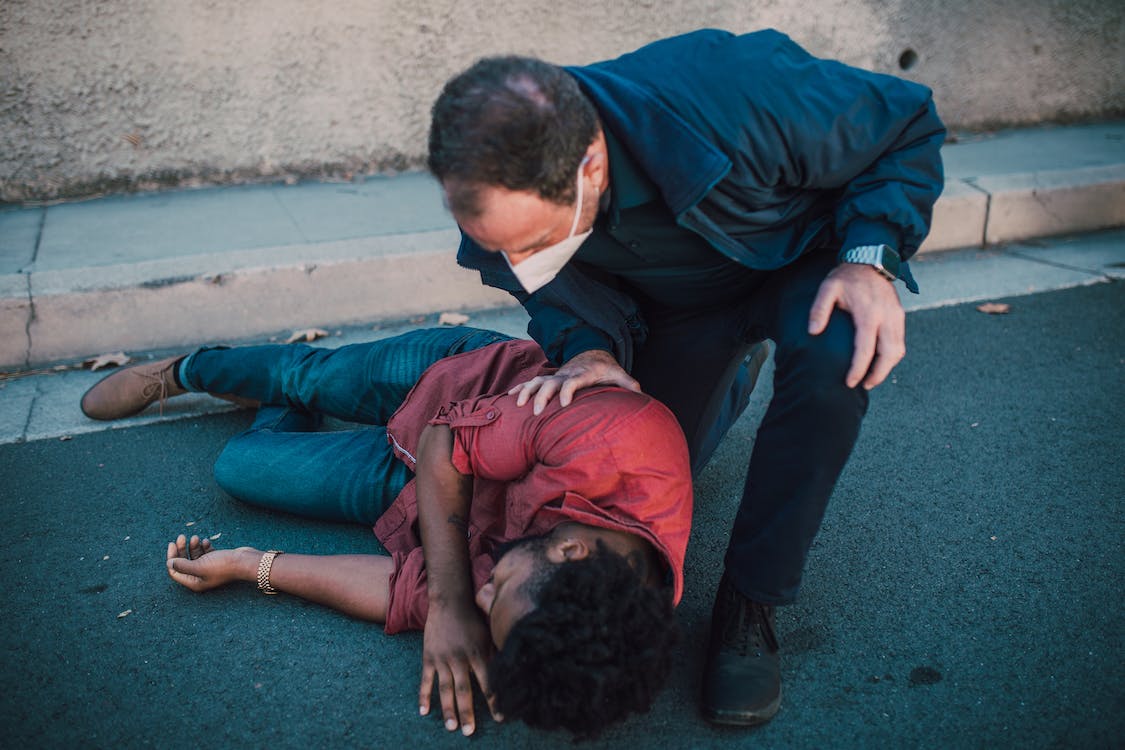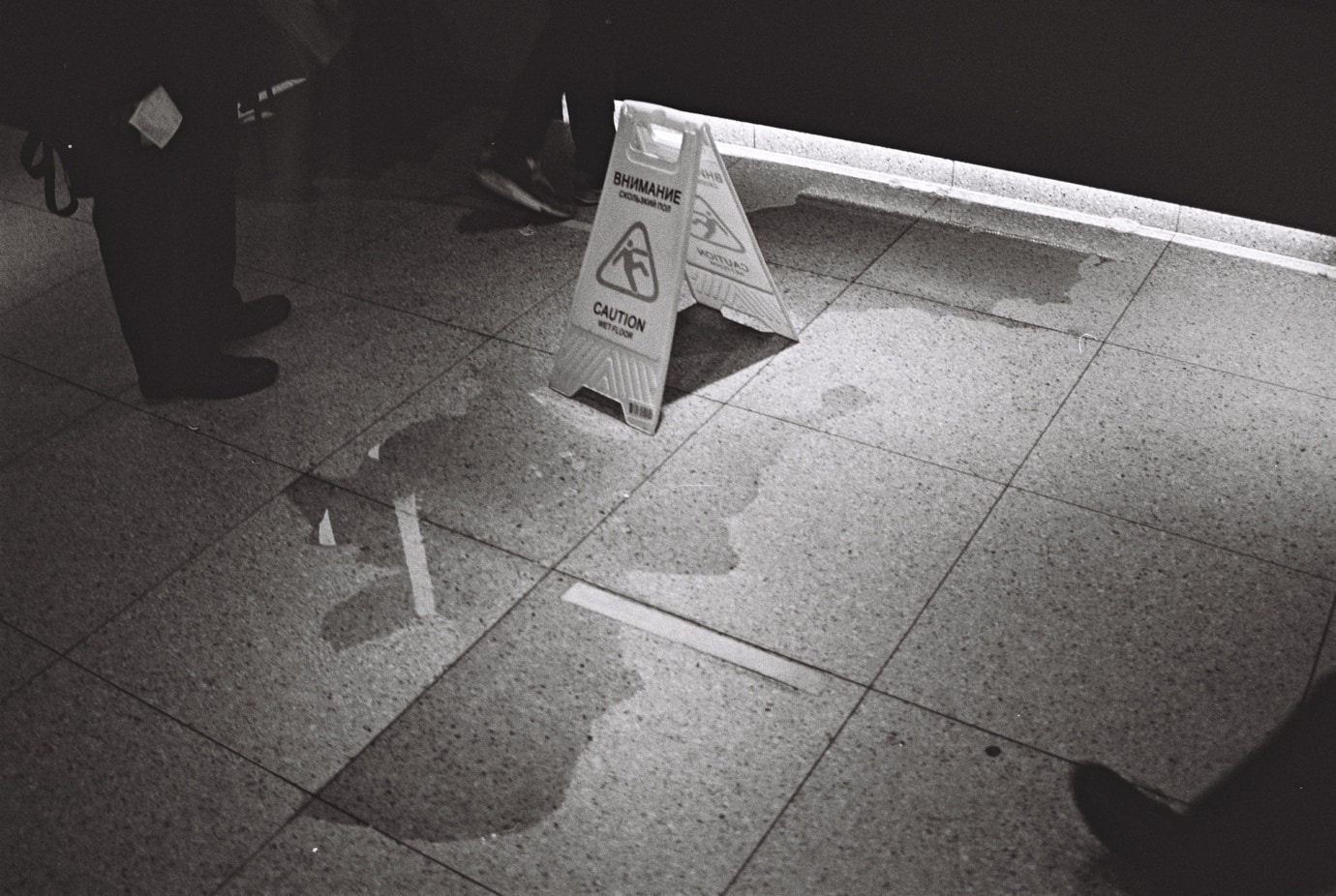
Are you querying the value of a slip-and-fall knee injury settlement? Direct answers matter when dealing with painful injuries and potential legal claims. This guide breaks down critical factors like injury severity, treatment costs, lost income, and legal nuances that define your settlement’s value. Let’s explore what shapes your compensation and how to solidify your claim for a fair knee injury settlement.
Understanding Slip and Fall Knee Injuries
Slip and fall accidents are notorious for causing common knee injuries that can range from minor bruises to severe trauma requiring surgery. The knee joint, a complex structure of ligaments, tendons, and cartilage, is particularly vulnerable during a fall.
Understanding the nuances of knee injuries and their treatments is crucial for medical recovery and building a strong compensation claim.
Meniscus Tear
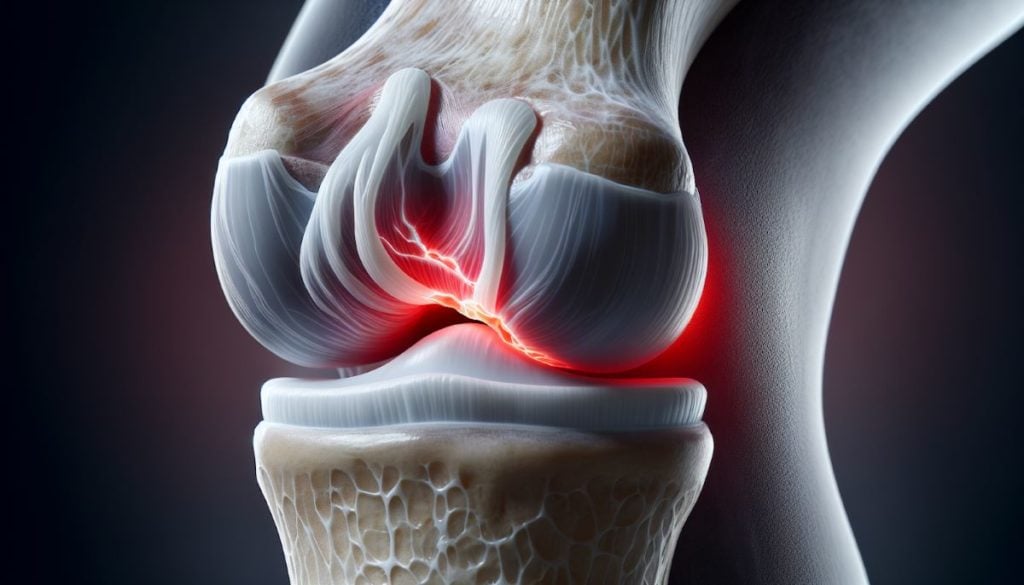
A meniscus tear is a common knee injury resulting from slip and fall accidents, characterized by damage to the cartilage that acts as a shock absorber between the thigh and shin bones. These tears can range from minor, treatable with rest and physical therapy, to severe, requiring arthroscopic surgery to repair.
The nature and extent of a meniscus tear significantly affect the potential fall knee injury settlement in a knee injury claim.
Anterior Cruciate Ligament (ACL) Injury
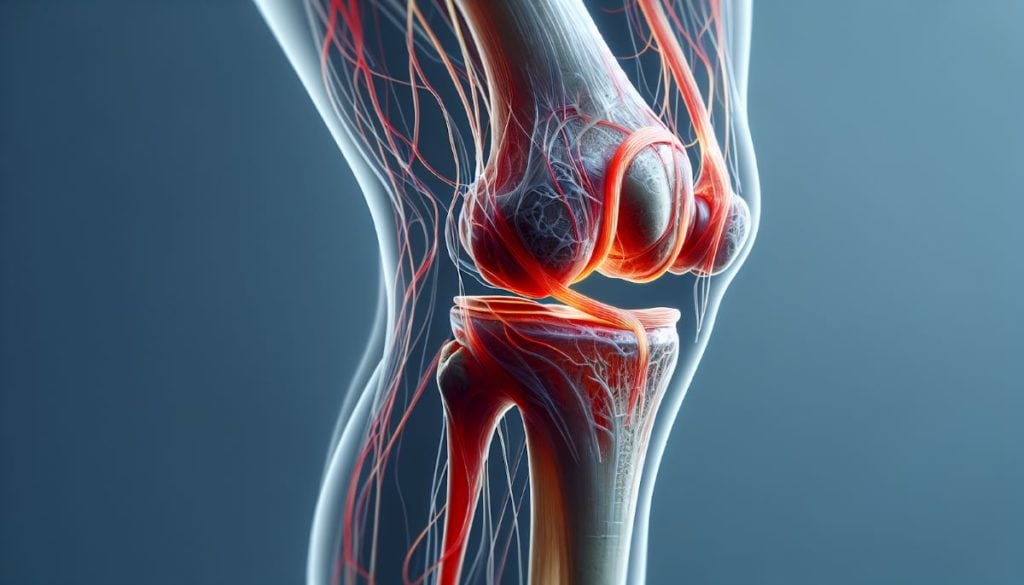
An ACL injury occurs when the knee is unnaturally bent or twisted, often during a slip-and-fall. This leads to partial or complete tears of this critical ligament. These injuries can be debilitating, with many victims experiencing significant pain and decreased mobility, sometimes necessitating surgical intervention to regain knee function.
The long-term impact of an ACL injury on an individual’s quality of life underscores the importance of a fair knee injury settlement.
Fractured Kneecap
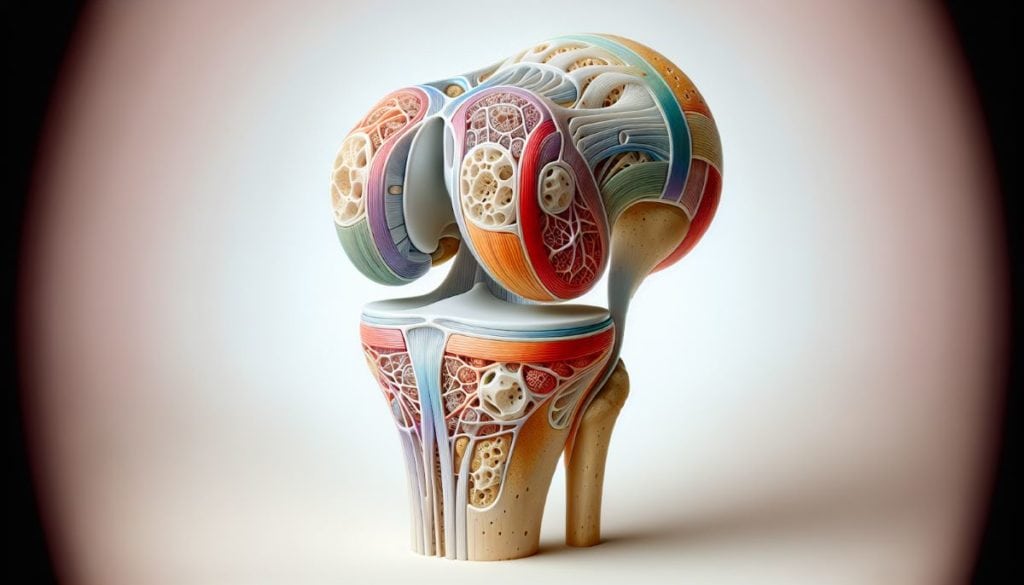
Patella fractures, resulting from direct impact to the knee during a fall, are classified based on the fracture pattern and displacement. Treatment can range from immobilization for non-displaced fractures to surgical repair for more complex breaks.
The severity of a patella fracture can prolong recovery, often requiring extensive physical therapy and, in some cases, leading to chronic knee problems such as arthritis.
Factors Influencing Settlement Amounts
When it comes to knee injury settlements, several factors come into play that can influence the amount of compensation you receive. Understanding these factors is key to ensuring that you receive a settlement that truly reflects the impact of your injury, as well as being aware of the average knee injury settlement.
Severity of Injury
The severity of your knee injury is a significant factor in determining settlement amounts. More serious injuries that result in chronic pain, extensive medical treatment, or permanent disability will typically command higher compensation to cover the long-term financial impact. If the injury exacerbates a pre-existing condition, this could also affect the settlement, potentially reducing the amount awarded.
Insurance Coverage
Insurance coverage plays a pivotal role in the settlement process, including the average settlement. Your medical expenses, a primary component of the settlement, are based on actual incurred costs. Having sufficient insurance coverage increases the likelihood of fair compensation while also providing the option to pursue assets through litigation if necessary.
Experienced personal injury attorneys can navigate the complexities of insurance laws in personal injury cases to ensure that your settlement reflects the full extent of your medical costs.
Psychological Trauma
Psychological trauma, often overlooked, can significantly increase compensation if properly documented and linked to the slip and fall incident. Settlements may include damages for emotional distress, encompassing a wide range of feelings such as:
depression
anxiety
fear
anger
loss of enjoyment of life
These emotional effects can be just as debilitating as the physical injury itself.
Contributory Negligence
Contributory negligence can dramatically affect your settlement. If you’re found even partially at fault for the accident, your compensation could be reduced or even barred altogether in some jurisdictions.
Defendants often argue that the injured party’s own negligence contributed to the accident, a strategy that can significantly diminish your settlement.
Gathering Evidence for Your Knee Injury Claim
Solid evidence is the cornerstone of any successful knee injury claim. Documenting every aspect of your accident and injury is crucial for receiving the compensation you deserve. Photos of the accident scene, medical records, and witness statements are all invaluable pieces of evidence that can substantiate your claim.
Medical Records
Medical records are perhaps the most critical evidence in a knee injury claim. They provide a detailed account of the injuries, treatment, and prognosis, which are essential in establishing the extent of the injuries and determining appropriate compensation. Obtaining these records through HIPAA-compliant forms ensures you maintain control over your medical privacy.
Accident Reports
An accident report is a key document that captures the specifics of the slip and fall incident. Informing the authority on the premises and accurately completing the accident report can add credibility to your narrative and are crucial in proving liability.
Legal representation is invaluable in ensuring that all pertinent details are included in the report to support your claim.
Witness Statements
Witness statements provide an independent account of the incident, reinforcing the facts of your case. Collecting these statements shortly after the accident ensures that the details are clear and accurate, which is essential in constructing a persuasive narrative for your injury claim.
Steps to File a Slip and Fall Knee Injury Claim
Navigating the legal process can be daunting, but it’s a critical step in securing a fair knee injury settlement. From notifying insurance companies to gathering evidence, each step is vital in building a strong case.
Notifying Insurance Companies
Promptly notifying your insurance company after a slip and fall accident is imperative. It’s the first step towards a successful claim.
Legal assistance can ensure that your notification complies with all necessary requirements, impacting your compensation claim.
Proving Liability
Proving liability involves showing that the property owner’s negligence directly caused your injury. Your attorney will help demonstrate the causal link between the unsafe condition on the property and your injuries, which is essential for a successful claim.
Gathering Evidence
Gathering comprehensive evidence is essential for a compelling knee injury claim. Photos, witness statements, and security footage all play a role in demonstrating the circumstances surrounding the accident and the extent of your injuries. Understanding the process of knee injury claims can help you build a stronger case.
Estimating Damages and Compensation in Slip and Fall Knee Injury Cases
Estimating damages and compensation in knee injury cases is a complex process. Understanding how to calculate these amounts is crucial for ensuring you are fully compensated for your injuries.
Medical Expenses
Medical expenses constitute a significant portion of the compensation in knee injury cases. These expenses include:
Costs for treatment
Surgery
Medication
Rehabilitation
It’s important to collect all billing records, including medical bills, and consider future medical costs when calculating your settlement.
Lost Wages
Lost wages due to time away from work can be calculated based on your salary or hourly wage. For self-employed individuals, the calculation is based on average daily income. The injury’s impact on future earning capacity is also considered.
Pain and Suffering
Compensation for pain and suffering is a critical aspect of personal injury settlements. These damages are awarded for the emotional and physical distress caused by the injury. Evidence such as medical records and personal diaries can support a claim for pain and suffering.
Long-Term Consequences of Severe Knee Injuries
Severe knee injuries can have long-lasting effects on your health and quality of life. A severe knee injury can lead to chronic pain, disability, and the need for ongoing medical treatment, which are common consequences of such injuries.
Ongoing Medical Treatment
Ongoing medical treatment for severe knee injuries may include surgery, physical therapy, and long-term care. Considering future medical expenses is important when estimating damages in a knee injury claim.
Physical Therapy
Physical therapy plays a critical role in the recovery process for knee injury victims. Specific exercises can help strengthen the muscles around the knee joint and improve mobility.
Lifestyle Changes
In addition to medical treatment, making lifestyle changes can significantly benefit joint health. Dietary changes, exercise modifications, and stress management are all important factors to consider.
The Role of Personal Injury Attorneys in Maximizing Settlements
Skilled personal injury attorneys are crucial in maximizing your knee injury settlement. They bring a wealth of expertise and experience to the table, ensuring you receive fair compensation for your injuries.
Negotiating with Insurance Companies
Attorneys are adept at negotiating with insurance companies, ensuring that their clients receive fair settlement offers. They can challenge low initial offers and protect you from bad-faith insurance practices.
Navigating the Legal Process
Navigating the legal complexities of a knee injury claim is where personal injury attorneys excel. They manage the entire process, including:
Filing the claim
Handling complex legal issues
Providing guidance on disputed liability
Assisting with cases involving pre-existing conditions
Their expertise can be especially helpful in ensuring a successful outcome for your knee injury claim.

Contact BLG for Legal Help
Navigating the aftermath of a knee injury from a slip and fall accident can be overwhelming, but understanding the process and knowing your rights can lead to fair compensation. This guide has provided valuable insights into the types of knee injuries, factors affecting settlements, gathering evidence, calculating damages, and the role of personal injury attorneys. With this knowledge, you’re better equipped to pursue the compensation you deserve.
If you’ve suffered a knee injury due to a slip and fall accident, you deserve fair compensation for your pain and suffering. Our experienced team at BLG specializes in securing settlements for slip-and-fall victims just like you. Don’t let medical bills and lost wages overwhelm you, let us fight for the justice and financial recovery you deserve.
Contact us today for a free consultation.
Frequently Asked Questions
Why are slip-and-fall cases hard to win?
Slip and fall cases can be hard to win because you need to prove that the property owner knew or should have known about the hazard that caused your fall, which can be challenging to establish (today’s date).
How much can I claim for a knee injury?
In a personal injury case, the average compensation payout for a knee injury ranges from $70,000 to $150,000, with more serious injuries potentially resulting in higher settlements.
How much are most slip-and-fall settlements?
Most slip-and-fall settlements are between $10,000 and $50,000. It’s important to consult with an injury lawyer to understand your entitlements.
How much should I settle for a knee injury?
Settling for a knee injury can result in an average compensation payout ranging between $70,000 to $150,000, with more serious injuries often leading to higher settlements and one out of every 12 cases resulting in over $1 million. Keep in mind that the severity of the injury will impact the final settlement amount.
What are the most common types of knee injuries from slip and fall accidents?
The most common types of knee injuries from slip and fall accidents include meniscus tears, ACL injuries, and fractured kneecaps, each requiring distinct treatment.

